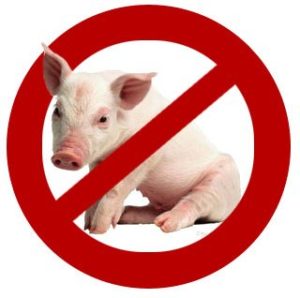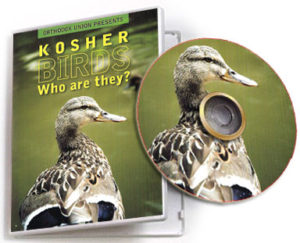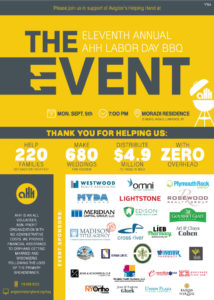 We begin with a PSA. Every year this time, the Oisvorfer gets a call and a follow up email enclosing a flier inviting all living and in driving distance of the five towns to come out on Labor Day in support of AVIGDOR’S HELPING HAND. This excellent organization runs without any administrative costs and provides financial assistance to orphans getting married and to widows and or widowers following the loss of the primary breadwinner…
We begin with a PSA. Every year this time, the Oisvorfer gets a call and a follow up email enclosing a flier inviting all living and in driving distance of the five towns to come out on Labor Day in support of AVIGDOR’S HELPING HAND. This excellent organization runs without any administrative costs and provides financial assistance to orphans getting married and to widows and or widowers following the loss of the primary breadwinner…
To date, this amazing organization has helped make 680 weddings for those orphaned, has distributed just under $5 million to those in need and has helped 220 families get back on their feet.
Details follow:
Where: 72 Muriel Avenue- Lawrence New York
When: Monday- September 5th, Labor Day
7:00PM
Can’t come? Send a check!
Avigdor’s Helping Hand
138-45 78th Drive
Kew Garden Hills, NY 11367
_______________________________________________________________________________
Siman Tov and Mazel Tov! We begin this week by wishing a heartfelt mazel tov to our dear and close friends, Judith and Shlomo Gottesman on the engagement earlier this week of their beautiful daughter, Talia, to Gabi Stone, he the son of Ellen and Stanley Stone of Teaneck New Jersey. Special mazel tov wishes to Talia’s grandparents Rabbi Moshe and Sondra Gottesman of Oceanside, and to bubby Blanche Lerer who is thankfully fully mended, and getting ready to dance at her granddaughter’s wedding. May Talia and Gabi enjoy many decades or marital bliss. Wedding detail to follow; all are invited!
Raboyseyee and Ladies:
Fowl: “The Do Not Eat List”
Nu, it’s a week later, the Oisvorfer is fully healed and is back with an all new review, his seventh, of parshas Re’ay.
The debate as to how many brand new mitzvis are found in Sefer Devorim rages on. Sources the heylige Oisvorfer has found, all suggest that Devorim (Deuteronomy) contains 75 or so new mitzvis, ober the big guy came by with his list which suggests that 150 (“at least”) of the 200 found in Devorim are brand new. Work is ongoing to resolve this matter; stay tuned.
In the meantime, welcome then to parshas Re’ay where Moishe, still orating, will rattle off a dizzying 55 mitzvis, a number of them quite novel. We cannot cover them all. Instead, we will focus on but one or two. Ober which ones? A mitzvah the RBSO previously gave us, but is repeated here in our parsha? Or, one that is brand new such as the instructions given to wipe out all the inhabitants and the city itself were it to be deemed a wayward city and people? We shall see.
 Re’ay features a complete listing of animals, fish, birds and or insects we may eat and not. Ober, haven’t we heard all this before? Were we not introduced to the kosher laws over in parshas Shimini? Indeed we were! Far vus (why) did Moishe feel compelled, in the last days and weeks of his life, to repeat these laws? Nu, efsher we can kler azoy: Moishe, through ruach hakoidesh (holy spirit, divinely inspired) zicher knew that this parsha is typically read during the summer months, a time when many are away on vacation in other cities and countries. He chapped that a good and ever increasing number of Yiddin might one day be cruising the high seas on one of the myriad luxury ships and that each oceanliner would feature, in addition to the main dining hall, a number of eating establishments, none of them very kosher. He was worried. He chapped that the (your) yetzer horo (evil inclination) might make its presence felt; doesn’t it always when people are on the road, and especially when cruising, if you chap.
Re’ay features a complete listing of animals, fish, birds and or insects we may eat and not. Ober, haven’t we heard all this before? Were we not introduced to the kosher laws over in parshas Shimini? Indeed we were! Far vus (why) did Moishe feel compelled, in the last days and weeks of his life, to repeat these laws? Nu, efsher we can kler azoy: Moishe, through ruach hakoidesh (holy spirit, divinely inspired) zicher knew that this parsha is typically read during the summer months, a time when many are away on vacation in other cities and countries. He chapped that a good and ever increasing number of Yiddin might one day be cruising the high seas on one of the myriad luxury ships and that each oceanliner would feature, in addition to the main dining hall, a number of eating establishments, none of them very kosher. He was worried. He chapped that the (your) yetzer horo (evil inclination) might make its presence felt; doesn’t it always when people are on the road, and especially when cruising, if you chap.
He was worried that efsher you might be inclined to decline the kosher meal being offered and would instead opt for an offering that was less than kosher. Or worse: you might select some tarfus mamish. He knew that efsher you would be embarrassed to order and eat your kosher meal with its plastic utensils while all those around you were feasting and enjoying lavish meals and service on fine china. He knew that one day, generation later, Yiddin would be off to China and other exotic places where unlike the larger cities they come from, kosher might not be as readily available. Avada he knew all this; he had been living with and amongst the Yiddin as their leader for the past 40 years. He was an eye witness to most of their shenanigans. He knew they were foodies. He recalled (back in Vayikro 11:4) them asking “who will feed us meat?” And he heard the Yiddin on more than one occasion recall the fish, leek, cucumbers, watermelons and other delicacies they claimed to have enjoyed while enslaved over in Mitzrayim. The Yiddin were food focused. They were tired of daily Munn rations, they had urges for something more succulent. He knew of their strong desires for a good piece of meat. As an aside, not much has changed so many generations later. Efsher you will recall how the Yiddin chapped all sorts of non-kosher meat when they became entangled with the Moabite shiksas. And who doesn’t desire such meat, if you chap? And avada he chapped just how weak most Yiddin were. What to do? Efsher you’re klerring azoy: why is the Oisvorfer stating with tongue in cheek and efsher a shtikel sarcasm, that the Yiddins’ request for meat, was really a euphemism for other forbidden meat dishes? Ober, hear ye, hear ye: the Oisvorfer is not alone! Grada (so happens) that no smaller a giant than Rashi, mamish on that very verse (11:4), commenting on their strange meat request when they were already laden with all sorts of animals as they left Mitzrayim says azoy: what they were efsher referring to when asking for meat -say it’s not so please- was taka the meat of forbidden relationships that were suddenly outlawed, verboten mamish, once the heylige Toirah was given. Oy vey!
 Shoin: He decided to give the Yiddin and by extension you, a refresher course in kosher eating. He was hoping that although it’s summer time, efsher you would go to shul and listen to the Toirah reading and hear once again all about kosher and non kosher animals, birds, fish and insects. And efsher still fresh on your minds and especially with the tshuva (repentance) season mamish upon us and with Yom Kippur looming, that efsher you might refrain from eating forbidden foods and especially fruits, if you chap. Was he successful? Ver veyst?
Shoin: He decided to give the Yiddin and by extension you, a refresher course in kosher eating. He was hoping that although it’s summer time, efsher you would go to shul and listen to the Toirah reading and hear once again all about kosher and non kosher animals, birds, fish and insects. And efsher still fresh on your minds and especially with the tshuva (repentance) season mamish upon us and with Yom Kippur looming, that efsher you might refrain from eating forbidden foods and especially fruits, if you chap. Was he successful? Ver veyst?
Knowing which of the birds are kosher for consumption is taka timely because just last shabbis the Oisvorfer was listening in on a conversation between the big mitzvah counter, he the very fellow mentioned above who claims that Devorim has at least 150 new mitzvis – all others are wrong- and another individual, who grada wears his tzitzis (fringes) out, ober stuffs chicken and cheese into his mouth insisting that birds are not meat and therefore can be enjoyed together with cheese and other dairy products. Shoin: so much for tzitzis acting as a reminder to keep all 613 mitzvis.
Speaking of kosher and non kosher fowl, back in an older Shmini review, we discussed the kosher laws and honed in on one of the birds, the Chasida (many believe it to be the stork) and why the RBSO decided that it was a non kosher bird. You can find the longer discussion over at https://oisvorfer.com/shmini-2013/.
Ober this year as Choidesh Elul approaches and with it, the time for introspection into our past misdeeds and thoughts about self improvement, the Oisvorfer wants to share a mamish gishmake pshat about yet another bird on the ‘do not eat’ list. By way of introduction, the heylige Toirah introduces this subject by Moishe telling the Yiddin (Devorim 14:11) azoy: “Every clean bird you may eat.” Clean avada means kosher. Ober in the next few pisukim (12-16), the heylige Toirah delineates the 20 or 21 forbidden species of birds. They are not kosher to be eaten. And why aren’t they kosher? We don’t know! And why don’t we know? Because the heylige Toirah does not tell us. Who says we have to know everything? If the RBSO wanted us to know davka why particular birds are on the fly list but cannot be consumed, mistama He would have revealed this information. He didn’t! Shoin: Ober, our rabbis weren’t quite happy with not knowing and in the instance of the Chasidah bird (also on the do not eat list), Rashi, quoting others tells us (back in Shmini:11) azoy: this bird may not be eaten and is considered not kosher davka because it takes care only of its own species. In other words: it’s kind to its friends only, whatever that means. What’s wrong with being kind to one’s friends? Ver veyst? Seemingly, they consider the Chasidah bird to be somewhat selfish, a trait we should not emulate. Who would want to show kindness to those not considered friends? Ver veyst? Veyter and let’s look in on another bird on the do not eat list.
 Posik 13 tells us azoy: “The Ro’uh, the Ayah and the Daya, according to its kind, may all not be eaten.” Again, no reasons given. Just don’t eat them! Ober while perusing the Oznayim Latoirah (gifted to the Oisvorfer by the Gail and Elliot Ostro), the following explanation was given why the ro’uh bird found itself is on the ‘do not eat’ list. Nu, at first glance one could kler that the bird’s name too closely resembles ‘horo’ from loshoin horo (bad mouthing), or efsher and also from ‘yetzer horo’ (evil inclination), and that the RBSO did not want His People to be reminded of either. Most of His people do quite well with both without reminders. Ober upon further review, the following logic was given.
Posik 13 tells us azoy: “The Ro’uh, the Ayah and the Daya, according to its kind, may all not be eaten.” Again, no reasons given. Just don’t eat them! Ober while perusing the Oznayim Latoirah (gifted to the Oisvorfer by the Gail and Elliot Ostro), the following explanation was given why the ro’uh bird found itself is on the ‘do not eat’ list. Nu, at first glance one could kler that the bird’s name too closely resembles ‘horo’ from loshoin horo (bad mouthing), or efsher and also from ‘yetzer horo’ (evil inclination), and that the RBSO did not want His People to be reminded of either. Most of His people do quite well with both without reminders. Ober upon further review, the following logic was given.
Says the Oznayim azoy: the ro’uh bird is so named because it is a roi’eh, meaning it can see exceedingly far. Its sight is mamish magical. Is that a bad thing? Says the heylige Gemora (Chulin 63b) azoy: were the ro’uh bird standing in Babylonia, it could see a carcass, over in the land of Israel. It could with precision spot a good piece of meat, ready to be eaten. Grada, many oisvorfs have similar talents; they too can spot a good piece of fleish, if you chap. Is that a bad thing? Ober why was this bird davka endowed with such givaldige sight? Nu, believe it or not, this gift of sight is somehow related to man, his sins, and specifically sins he may have committed with his eyes. And with gilgul (reincarnation). Let’s explore that a bit further. Said the Arizal, he, as we have told you over and again, a very famous Kabbalist with a great mind and imagination, and efsher also most well known for the coldest mikveh (and shrinkage) on this planet azoy: if a man gazes at women forbidden to him (and who doesn’t), he does harm to that aspect of heaven which is congruent to one’s eyes. In other words: even looking without illegal touching is a sin and punishable. And his punishment for this illegal gazing? Upon his passing from this earth (mistama after many decades of gazing and efsher also some grazing, if you chap, his soul is returned to this world for rectification. So far so good. Ober this time, he is reincarnated and comes back as the bird known as the ro’uh. And what’s so giferlich about that? Now as its (his) punishment, the bird sees a good piece of meat, a carcass, from the distance and flies over to chap it. Ober once it arrives, it finds that another bird or animal has gotten to the booty first. The bird remains hungry and unsatisfied.
 Shoin, whether or not, the RBSO placed the ro’uh on the not-kosher to be consumed list, davka because man was stam azoy but looking at women verboten to him, ver veyst? That being said, a nice pshat for the Shabbis tish it is, and avada as Choidesh Elul approaches this Shabbis mamish (Sunday as well) and with it, the preseason for tshuva (repentance) for your past sins which avada includes plenty of illegal gazing and efsher also pecking, if you chap, let’s avada keep in mind the words of the heylige Ari. And efsher that’s taka why he kept his mikveh so damn cold; efsher it was his intent to cool down the heat one found himself in from illegal gazing even from afar.
Shoin, whether or not, the RBSO placed the ro’uh on the not-kosher to be consumed list, davka because man was stam azoy but looking at women verboten to him, ver veyst? That being said, a nice pshat for the Shabbis tish it is, and avada as Choidesh Elul approaches this Shabbis mamish (Sunday as well) and with it, the preseason for tshuva (repentance) for your past sins which avada includes plenty of illegal gazing and efsher also pecking, if you chap, let’s avada keep in mind the words of the heylige Ari. And efsher that’s taka why he kept his mikveh so damn cold; efsher it was his intent to cool down the heat one found himself in from illegal gazing even from afar.
Nu, speaking of the Yiddin’s desire to eat meat, it so happens that permission to enjoy and eat meat, other than from the portion of the korban (sacrifice) reserved for its patron, is mamish discussed and granted in this week’s parsha. Lommer lernin (let’s learn).
As mentioned mamish just above, this week, (Devorim 12:20-21), the Yiddin are given permission to eat meat: steak, ribs and more, including Chinese, Mexican, Japanese and whatever else one’s heart desires. Avada the Oisvorfer would prefer were you eat more Chinese. And just like that, a new industry was born: Fleishig (meat) restaurants, catering and in chasidishe circles, even fleishig Brissim (circumcisions). Moreover and as we will shortly learn, the entire Shichita (slaughtering) industry, mashgichim (kosher supervisors) and all, has its roots right here in Parshas Re-ay. And if you’ve ever wondered why we need a Mashgiach timidi (steady) to sit in your favorite food establishment, the Vaad will point to Parshas Re-ay for validation of their existence. Is all that emes? Ver veyst but we’re stuck with them until the Moshiach makes an appearance to straighten this entire mess out. Nu, lets learn the heylige Toirah, the story of the Yiddin being permitted to eat meat, slaughtering procedures and more. Here we go.
And what is the big deal about eating meat? What’s the chiddish (big news in town), you ask? Weren’t they eating meat before they go to the Promised Land? Didn’t we spend 10 weeks learning Sefer Vayikra, dedicated mostly to Korbonis (sacrifices) and weren’t we taught that the Koihanim (priests) and in some cases also the regular Joe bringing the Korban (sacrifice), were also able to eat a good piece of meat, albeit always well done? Indeed we did. And didn’t we learn that the Yiddin were also allowed to eat meat following the Mabul (great flood) when all the vegetation was destroyed? Does anyone have an answer, anyone?
The big news is that this week Moishe tells the Yiddin in the name of the RBSO that they can eat unconsecrated meat-animals that are slaughtered just for their pleasure, meaning even if they are not being brought as Korbonis . In plain English as only the Oisvorfer speaks: up until now, were they in the mood for a burger, a steak, a lean brisket sandwich, rack of lamb or even any other rack, if you chap, they would have to bring a Korban and under certain conditions, they would also get to partake. Ober this week, the RBSO, mistama under pressure from the local Vaad, and you know what kind of mafia style pressure they can exert, tells the Yiddin it’s OK to eat meat anytime. Anytime, so long as the Mashgiach and Vaad (Kosher Supervisory Agencies) receive their vig. And now if one is taka in the mood for a good piece of meat and who at times isn’t, if you chap, it’s all ok but only under certain conditions. And what might those be, pray tell?
Says the heylige Toirah azoy: “When G-d will enlarge your border, as He has promised you, and you shall say, ‘I would eat meat,’ for you have a desire to eat meat, to your heart’s entire desire may you eat meat. If the place that G-d will choose to place His name will be far from you, you may kill from your herd and from your flock, which G-d has given you, in the way I have commanded you and you shall eat in your cities according to your hearts desires.”
Seemingly the RBSO avada understood that His chosen people are full of desires, especially to chap a good piece of meat, and realizing that such desires are at times difficult to tame, said OK to meat. And He also said that the Yiddin can eat as much meat as they desire. That was avada before the dairy farmers and those that sell fish and fowl, decided that too much meat will eventually wreak havoc with your cholesterol.
More: the RBSO also realized that people don’t want to schlep too far for good meat and said that if people will live far from where the RBSO designates His home (nowadays – Yerusholayim), they may have meat in their own cities and neighborhoods. Sadly, in our times, Yiddin interpret these words to mean that permission was granted for the opening of food establishments mamish a few storefronts from one another so as to make sure that none make too much of a living and also to ensure that meat is never too far from where they reside. Yiddin!!
Ober, at the same time, the RBSO gave specific guidelines under which one can enjoy his meat and none of these include the pursuit of meat that is forbidden to look at and even enjoy, if you chap. Shoin, lucky for most of you, Yom Kippur is mamish within sight. Let’s not forget the lesson of the forbidden ro’uh bird: you zicher do not want to come back reincarnated with great sight but unable to enjoy a good piece of meat or even chicken.
Nu, let’s chazir (review): Until this specific permission was given, in order for the Yiddin to have a good order of ribs, they had to bring a specific Korban (korban Shelomim) which allowed for the giver to also partake in the game. And if you read the RBSO’s instruction paragraph carefully, you would have seen these words: “………..in the way I have commanded you and you shall eat in your cities according to your heart’s entire desire.” These words are bolded so that you can mamish absorb the givaldige chiddish (amazing breakthrough) that the Chachomim (sages) came up with.
Shteltz zich di shaiylo (the question arises): where are those (above) commandments given? When? To Whom? And the answer is: to no-one! They are not found in the gantze Toirah shebecsav (Five Books). Nowhere!! Ober not to worry because it so happens that our Chachomim have mamish a brilliant answer, don’t they always, and that’s taka why they are called chachomim. They say: what do you mean the rules for slaughtering were not written down and therefore don’t exist? Are you an idiot? These rules were given to Moishe orally when he was up there for 40 days without eating and drinking and you can only imagine how hungry and thirsty he was while listening to the RBSO go over the details of shichita and food preparation. Moreover, the chachomim use this language to prove that Toirah she- baal peh (the oral tradition) is taka real because otherwise the gantze parsha of kosher makes no sense. Mistama at the same time, the RBSO also told Moishe that every kosher establishment needs a full time Mashgiach though this rule wasn’t to become effective until later in the 20th century, and that Broccoli needed to be hand washed and even more shtusim (bs). Hey: it’s oral law, do we dare argue over oral? Not the Oisvorfer.
 In fact, the laws of Shechita have been passed down in an unbroken chain from Mt. Sinai until today, so they say, and who are we to argue? If any of you amoratzim wish to argue, you’ll need to first become proficient in gemora, Maseches Chulin and in the Shulchan Aruch Yoreh Deah 1-28. The Oisvorfer has concluded azoy: it’s just easier to pay for the Hashgocho and be done with it.
In fact, the laws of Shechita have been passed down in an unbroken chain from Mt. Sinai until today, so they say, and who are we to argue? If any of you amoratzim wish to argue, you’ll need to first become proficient in gemora, Maseches Chulin and in the Shulchan Aruch Yoreh Deah 1-28. The Oisvorfer has concluded azoy: it’s just easier to pay for the Hashgocho and be done with it.
Shoin, it appears that most of you already forgot the question we raised earlier about Noiach being given permission to eat meat post Mabul (flood) and if that’s taka (in fact) the case and it looks very much like it taka was, so what is the big news in this parsha? Nu, I still have no idea but here’s what the Oisvorfer dug up while waiting for his order of steak, medium rare. Way back in Parshas Noiach, we were taught that he Noiach was given the heter (permission) to eat meat. And not a moment too soon as we also learned that his grandson Kin-an the chazir minuvil that he was, couldn’t wait and took to Noiach’s meat, oy vey. Exactly what the issue (prohibition) to meat eating was pre-Mabul, is avada the subject of a great machloikes rishoinim (argument among early Rabbis), but we do know that back then too many people were doing not such nice things with meat, if you chap and that’s what led to the entire flood to begin with. Efsher (maybe) there was too much mixing of white and dark meat? Ver veyst?
A gittin Shabbis and choidesh-
Heylige Oisvorfer Ruv
Yitz Grossman

